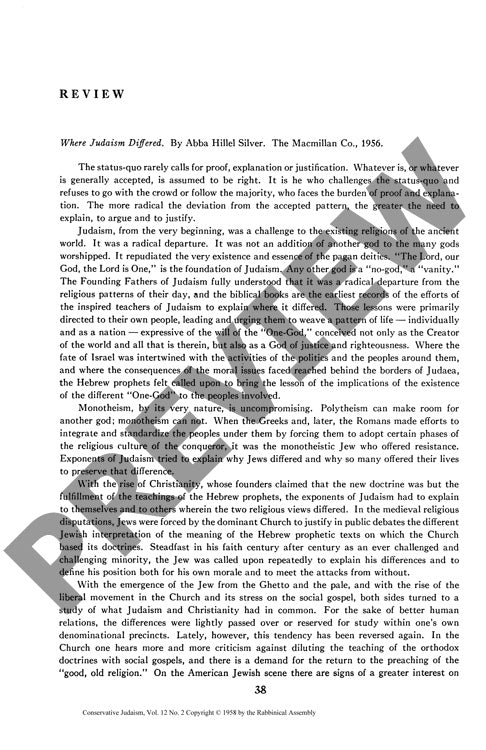Review Where Judaism Differed
Couldn't load pickup availability
Judaism's radical departure from ancient religious norms established a revolutionary theological paradigm that continues to influence modern faiths. Abba Hillel Silver's "Where Judaism Differed" traces this transformative journey, revealing how Judaism's uncompromising monotheism fundamentally challenged existing religious patterns across civilizations. Through historical encounters with Greek philosophy, Roman integration efforts, early Christianity, and medieval disputations, Judaism maintained distinct theological positions that set it apart from contemporaneous belief systems. The faith introduced unprecedented concepts: a universal God bound by divine law, the rejection of sexual rites while elevating family sanctity, and the prioritization of practical ethics over theoretical speculation. Perhaps most significantly, Judaism pioneered social justice approaches that produced legal codes surpassing contemporaneous systems like Hammurabi's. Silver demonstrates Judaism's remarkable ability to balance apparent contradictions - justice with love, individual with society, faith with knowledge - while maintaining what he terms a "livable faith" focused on earthly progress rather than otherworldly salvation. While the analysis would benefit from broader institutional analysis and deeper exploration of central Jewish practices like Sabbath observance and synagogue life, Silver's methodological approach to comparative religious analysis makes a valuable contribution to interfaith understanding, even as temporal ambiguities persist regarding whether certain differences are historical or contemporary.

More Information
-
Physical Description
-
Publication Information
Published 1958
ISBN
-
Publication Credits
David Aronson

